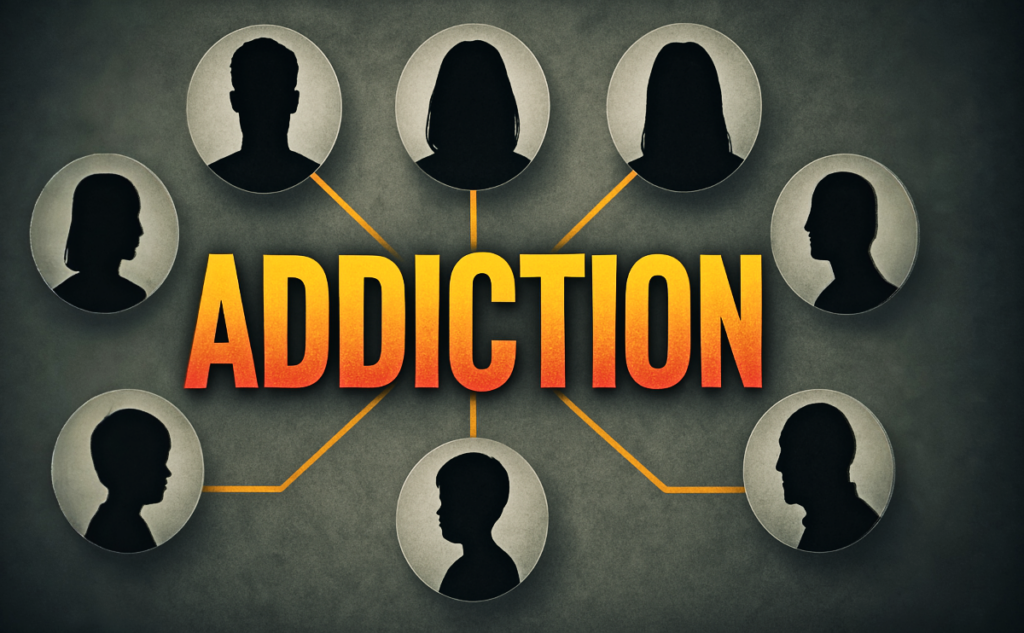For too long, addiction has been framed as an individual problem—something that belongs solely to the person using substances. That narrative is not only wrong, but also destructive. Addiction does not exist in a vacuum. It bleeds into every corner of the household and ripples through extended family and friends who love the person caught in its grip.
Parents often carry a quiet shame, replaying every decision they ever made, wondering where they went wrong. Siblings sometimes feel invisible, pushed aside as the spotlight turns toward the chaos of one person’s addiction. Children grow up in an atmosphere of secrecy, learning that silence and denial are survival skills. Grandparents, cousins, and close friends suffer too, helpless as they watch the family dynamic collapse under the weight of a disease no one asked for, but everyone must carry.
This disease does not discriminate. It lives at the dinner table, it hovers over birthdays, it takes up a seat at the holidays. Families become unknowing accomplices—covering up for missed work, explaining away erratic behavior, or pretending not to see what is right in front of them. These choices come from love, but they often prolong the cycle. Breaking that cycle requires honesty, boundaries, and the courage to face what hurts.
Drug and alcohol dependency often take center stage in the conversation, but they are not the only addictions that devastate households. Gambling addiction drains savings accounts and destroys trust between spouses. Compulsive shopping or overspending puts financial stress on everyone under the same roof. Pornography addiction corrodes intimacy and leaves partners feeling rejected or unworthy. Workaholism isolates parents from their children, teaching them that attention and affection are negotiable. Even social media dependency, so normalized today, can rob families of connection while creating cycles of comparison and anxiety. Each of these addictions comes with symptoms—secrecy, financial instability, emotional distance, compulsive lying—and each reshapes the family dynamic in ways that leave scars.
Family is not limited to blood. It includes anyone who loves deeply enough to be affected. Friends who lose sleep worrying. Neighbors who step in to protect children. Teachers who watch a student’s spirit dim. Addiction is a family disease because it steals from everyone who loves the one struggling.
Recovery is strongest when the family engages. That means seeking education, finding support groups, building new boundaries, and sometimes making the hardest decision of all: walking away for survival. Healing is not about pretending nothing happened. It is about reclaiming truth, dignity, and hope for everyone involved.
If you are walking this road, you are not alone. Help exists in Scioto County, but it requires reaching out and using the resources built for this very fight. Families can heal, but only when they stop carrying the disease in silence and begin seeking support out loud.
The Counseling Center — including Day One Recovery in Portsmouth, Ohio. Crisis Hotline: 740-354-6685
BrightView Health — 866-934-7450
Scioto Paint Valley Mental Health — 740-354-2944
Hope Source — 740-353-4673
AA / NA Local Chapters — 800-589-4827
Scioto County Crisis Center — 740-354-1010
Local Law Enforcement — 911
